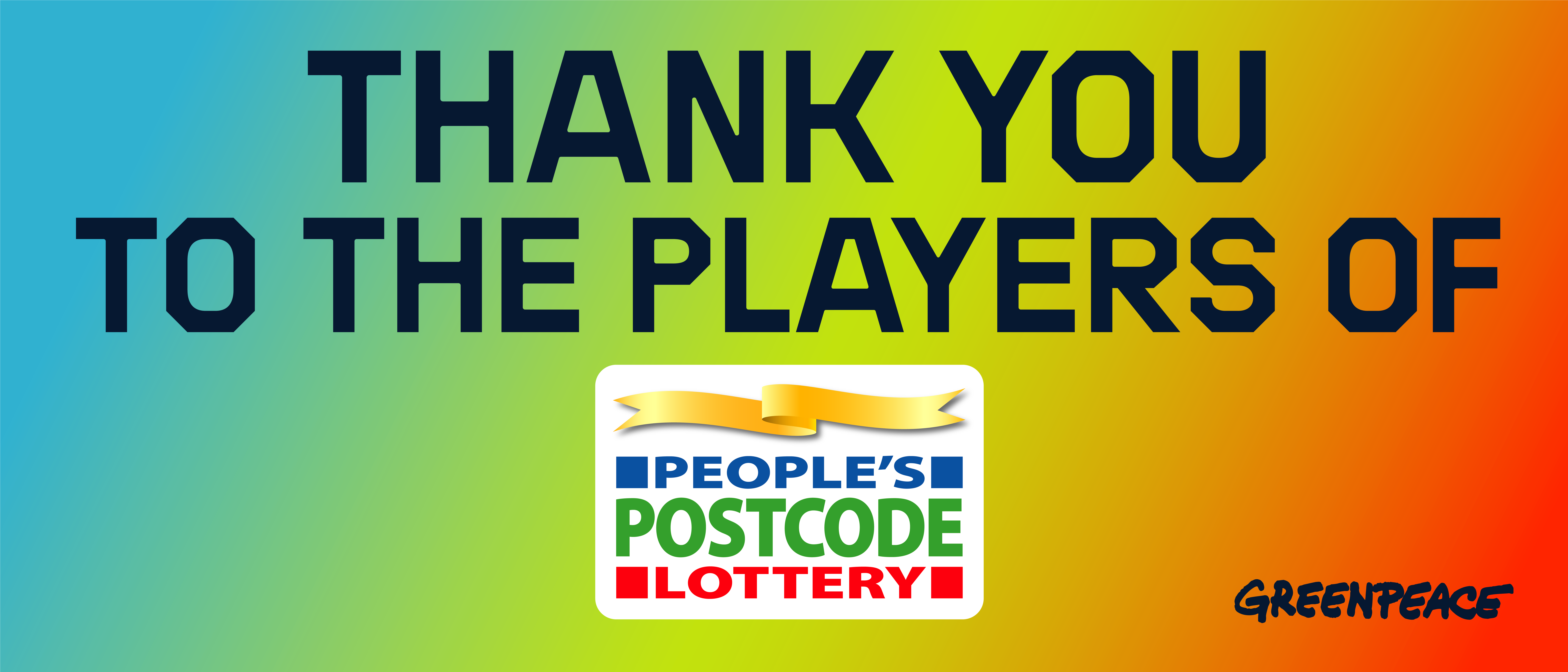Thanks to Players of People’s Postcode Lottery, Greenpeace has been awarded £2 million to help tackle the climate crisis. This includes helping to raise awareness, locally and globally, about the important role our oceans play in tackling climate change. It’s common knowledge that trees help regulate our climate and help us breathe, but less is known about how our big blue sea keeps us alive.
Players are funding research into the role that marine protected areas (MPAs) play in tackling climate change. For example, Mangrove forests, seagrass meadows and tidal salt marshes may be adding as much carbon to their ‘soils’ (the seabed) each year, as all of the earth’s forests put together add to theirs. And they only cover an area of around 3% that of forests!
Thank you so much for helping Greenpeace UK inspire people to take action on climate change through protecting our oceans.
Protecting our oceans means protecting our climate
From overfishing and climate change, to plastics and deep sea mining – the threats facing our world’s oceans are growing bigger and more urgent day by day. Not only are we damaging the incredible marine life they support, and the billions of people that rely on fish in their diets, human activity is damaging our ability to tackle climate change.
Our oceans are an important ‘carbon sink’. This means the ability to absorb carbon dioxide from the atmosphere (carbon can be absorbed and stored by living plants and animals). An ocean and coastline teeming with life helps keep carbon locked away – we call this “blue carbon”.
Did you Know? Whales are climate heroes. By mixing and redistributing nutrients, whales make the ocean more fertile for tiny microscopic plants called phytoplankton. These minuscule plants catch carbon from the atmosphere through photosynthesis, storing it in their own cells instead. In the process, they produce more than half of the oxygen on the planet. Species like blue whales capture and store carbon, keeping the ocean healthy, and making it able to deal as best as it can with the climate crisis. They’re not alone either. Scientists are now discovering just how crucial sea life is for all of us, from the carbon stored in sea plants to all sorts of animals.
The good news is right now governments are working on a Global Ocean Treaty, which is a legally binding agreement to protect the high seas. If they get it right, it’ll open the door to a huge network of ocean sanctuaries – areas of protected waters – which could protect over a third of the global oceans. If we protect the ocean with a huge network of sanctuaries we will help sea life thrive. And thriving sea life can help slow climate change!

